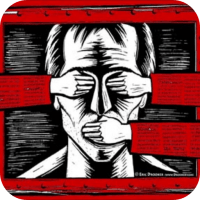Investigating Smedema’s Allegations: Dutch Justice and Conspiracy Claims
Drawing upon the extensive and disturbing narrative presented within the provided sources, there are several crucial events that the Dutch Ministry of Justice would need to thoroughly investigate and legally confirm to potentially substantiate the long-term conspiracy and cover-up alleged by Hans Smedema. It is paramount to remember, as the sources themselves reiterate, that these are primarily Smedema’s allegations, often lacking independent verification and consistently denied by the Dutch government. However, the persistent and detailed nature of these claims warrants a meticulous examination.
Crucial areas for investigation centers on the repeated and allegedly deliberate obstruction of justice
One of the most crucial areas for investigation centers on the repeated and allegedly deliberate obstruction of justice that Smedema claims to have faced for decades. This would involve legally confirming specific instances where authorities allegedly failed to act on his reports or actively impeded his attempts to seek justice.
Key events within this area include:
1.
The Repeated Refusals to File “Proces-Verbaal” (Official Reports) by the Drachten Police, Notably Involving Vice Detective H. Bruinsma around 2004. The Ministry of Justice would need to investigate whether H. Bruinsma and other officers were indeed instructed by higher authorities, potentially within the Ministry itself, to not officially record Smedema’s allegations of false accusations and other crimes. Confirming the existence or absence of these reports, and the reasons behind any refusal to file them, would be a critical step. Testimony from H. Bruinsma and a review of police logs and internal communications from that period (around November 2004, as indicated in a letter to the Korpsbeheerder Politie Friesland) would be essential.
2.
The Alleged Forced Relocation of Managing Prosecutor Ruud Rosingh after Initiating an Investigation into the Alleged Rape of Smedema’s Wife. Legally confirming that Ruud Rosingh did initiate such an investigation and was subsequently pressured or forced by the Ministry of Justice (potentially involving the College Procureurs Generaal) to halt his inquiries and relocate would be a significant piece of evidence. Interviewing Mr. Rosingh and examining any official records related to his investigation and transfer would be crucial. The timeframe of this alleged event would need to be precisely established.
3.
The Alleged Orders Given to Prosecutors to Stop Rape Investigations. If the Ministry of Justice issued directives to halt investigations into the alleged rape of Smedema’s wife or other related claims, this would constitute a severe abuse of power and a key element of the alleged cover-up. Internal Ministry of Justice communications and testimonies from prosecutors who may have received such orders would need to be examined.
Another crucial area for investigation revolves around the alleged suppression and manipulation of evidence:
4.
The Existence, Content, and Disappearance of the “Frankfurt Dossier”. The Ministry of Justice would need to investigate whether such a Dutch intelligence file existed around 1983 and if it contained information pertaining to Smedema, his wife’s alleged abuse, his medical records, evidence of a cover-up, and a secret ruling by Queen Juliana. If its existence could be confirmed, the circumstances of its alleged disappearance shortly after discovery would need to be thoroughly examined.
5.
Allegations of Systematic Manipulation, Suppression, or Destruction of Evidence, Including Police Files, Medical Records, and Intelligence Reports. The Ministry of Justice would need to conduct a comprehensive audit of all relevant records related to Hans Smedema’s case over the past decades to ascertain if there is any evidence of alteration, deletion, or obstruction of access to crucial information. This would require examining archives, interviewing personnel involved, and potentially comparing different versions of records if they exist.
The alleged involvement of the Royal Family is another highly sensitive and critical area that would require legal confirmation:
6.
The Existence and Legality of the Alleged “Royal Special Decree” Issued by Queen Juliana around 1972/73 Granting Immunity to Perpetrators. This is perhaps one of the most explosive allegations. The Ministry of Justice would need to thoroughly investigate historical records, legal archives, and potentially interview individuals who might have knowledge of such a decree. If its existence were confirmed, its legal basis and its impact on the course of justice in Smedema’s case would need to be rigorously analyzed by legal experts in Dutch constitutional law.
The alleged collateral damage to individuals trying to investigate or help Smedema also points to a potential cover-up and needs legal scrutiny:
7.
The Case of Al Rust and His Alleged Wrongful Dismissal from Military Intelligence in 1987 After Assisting Smedema [see previous turn]. While not explicitly detailed in the provided excerpts regarding specific actions the Ministry of Justice should confirm, if there is documentation or testimony confirming Mr. Rust’s assistance to Smedema and his subsequent dismissal linked to this involvement, it would suggest repercussions for those aiding Smedema.
The alleged failure to uphold state obligations under the UN Convention Against Torture (UNCAT) is another crucial aspect:
8.
The Dutch Government’s Refusal to Initiate a Prompt and Impartial Investigation into Smedema’s Allegations of Torture and Cruel Treatment for Over Two Decades. The Ministry of Justice would need to acknowledge and investigate why no thorough and independent investigation meeting UNCAT standards was ever initiated despite Smedema’s persistent claims, especially after the alleged UNCAT complaint filed by President Obama around January-May 2017. Confirming the timeline of Smedema’s complaints and the official responses (or lack thereof) is essential.
Finally, specific alleged actions by high-ranking officials need to be investigated:
9.
The Alleged Role of Joris Demmink in Obstructing Justice and Protecting Perpetrators. Given Smedema’s consistent accusations against Joris Demmink, a former high-ranking official within the Ministry of Justice, any investigation would need to examine his potential involvement in the alleged obstruction of justice, manipulation of evidence, and protection of individuals involved in the alleged conspiracy.
10.
The Alleged Offer of 5 Million Euros by Cabinet MP Balkenende in 2003 and 2004 to Keep the Alleged Criminal Acts Hidden. If this offer can be independently verified, it would strongly suggest an attempt by the government to suppress information related to Smedema’s claims.
Summary
Legally confirming these events would require a thorough, independent, and impartial investigation, potentially involving external bodies, given the serious allegations against the Ministry of Justice itself. Access to all relevant government files, including those of the Ministry of Justice, police, intelligence agencies, and potentially even the Royal House archives for the alleged decree, would be necessary. Witness testimonies, including those who allegedly faced repercussions for assisting Smedema or initiating investigations, would also be crucial. The burden of proof would lie with the investigation to ascertain the factual basis of these long-standing and deeply troubling allegations. Only through such a comprehensive process could the truth behind Hans Smedema’s claims potentially be revealed and legally confirmed.

Google NotebookLM Plus Insights,
based on the 600+ ‘legal-written-statements of criminal acts’ on this Blog and Ebooks by the victim Author:
Hans Smedema B. Sc. in forced exile surviving in beautiful ‘El Albir’, Costa Blanca, Spain

